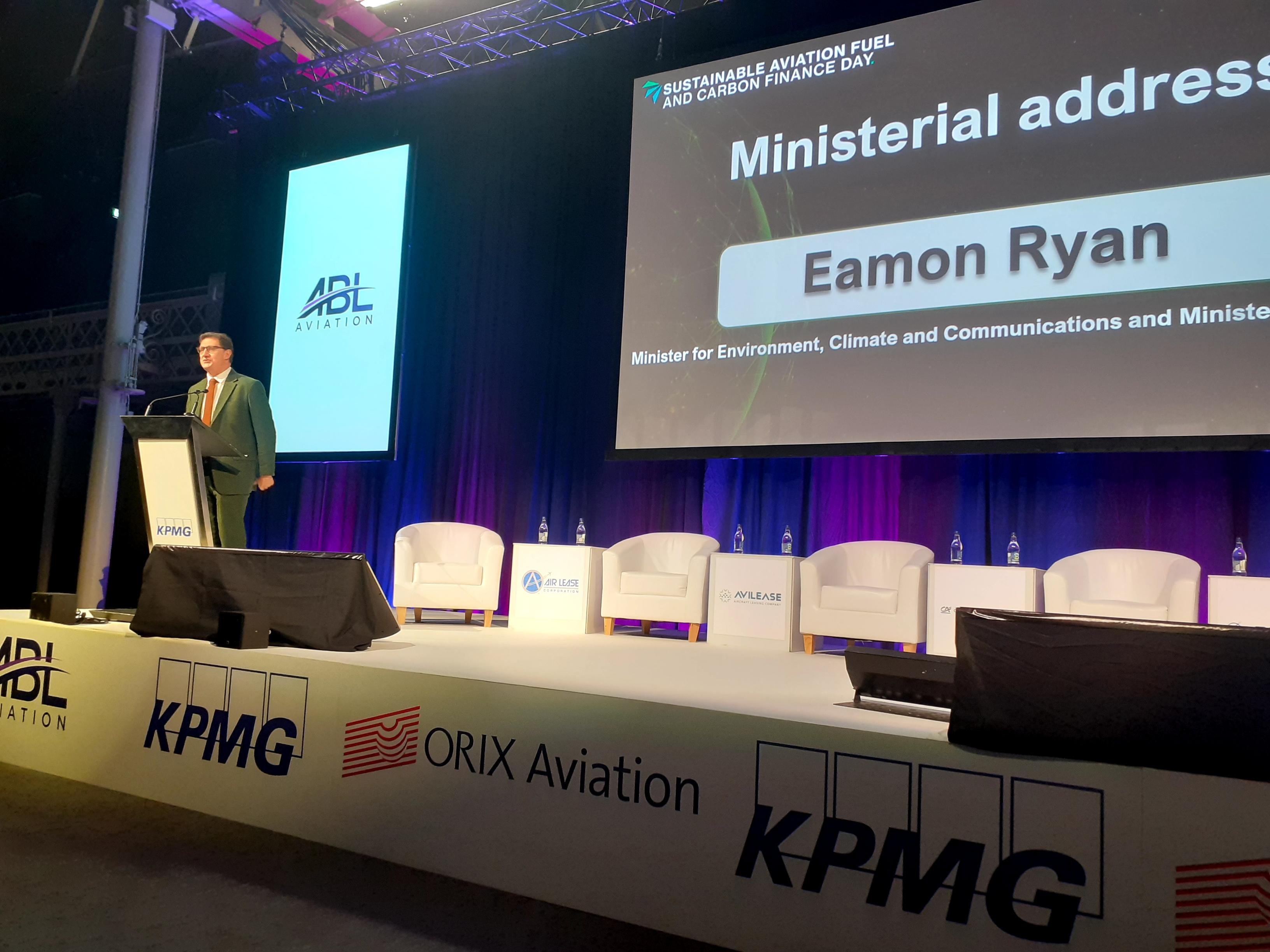Speaking at Airline Economics’ Sustainable Aviation Fuel and carbon financing conference day in Dublin, Eamon Ryan – Ireland's minister for the environment, climate and communications, as well as the leader of the Green Party – outlined his vision of Ireland’s continued journey towards net zero. Leveraging the “advantages and benefits” of being a small country, combined with benefits from its unique geographical location, he believes his nation is ready to help address “existential environmental problems”.
As a small island on the edge of Europe, Ireland benefits “tremendously from the intricate connectivity that aviation brings,” he explained, recognising the country’s very large and “significant” airlines and leasing sector. “We are a country of immigrants as well as people coming in now, and that too is enhanced by the ability to meet family and friends,” added Ryan.
However, Ryan acknowledges that the world needs to come together to “address the existential environmental problems that we face”. Although technological advancements over the last few decades have provided notable efficiency increases, that trajectory is unlikely to continue. “We’ve gone to the edge of what we can do in terms of structure and weight reduction,” he highlighted, adding that governments and policymakers now have to look “particularly at the fuels and other efficiency ways in the aviation sector that we will be able to manage and reduce emissions”.
“In Ireland we’re a small country, and that brings advantages and benefits, particularly in government,” Ryan commented. “We work in partnership, and try to get out of silos within government departments, and also within industry.” Additionally, Ireland’s recently-created sustainable aviation fuel task force – which held its inaugural meeting in December – will play a “critical role” in the development and deployment of SAF. “We as a state, are good at this,” added Ryan, clarifying that after the initial introduction of biofuels the sector is subsequently likely to switch towards synthetic e-fuels, the “exact components or exact economics or exact technological development [of which] has yet to be really seen”.
Owing to Ireland’s unique geographical location alongside the Atlantic, Ryan describes it as “one of the windiest places on the planet,” with offshore wind farms having great potential to facilitate the production of electricity (or subsequently green hydrogen). “Government is committed to first of all tapping into that surplus wind resource that we have, and then [looking] to see how we could deploy it here in ways that are productive, economic, competitive, and deliver on our environmental targets,” he confirmed. “If you look strategically where Europe is, we import most of our energy and fossil fuels,” he continued, noting that Ireland is “not a resource-rich company when it comes to some of the others. So to follow this green, efficient route is the right way politically, economically, strategically to cope”.
Adding a personal perspective regarding required change, the focus of perceived blame also needs to shift away from the end-user or consumer, suggested Ryan. “We’re not going to make this change by blaming the public. So that switch away from blaming the consumer… is a really important understanding in my mind for where the global environmental movement is going, because the other way doesn’t work”.
“Forward-thinking people within this industry which are thinking [about] sustainability, which are using their innovation and engineering skills, are the ones that will have a key leadership and important role,” he concluded.
Ireland’s environment minister addresses “existential environmental problems”

